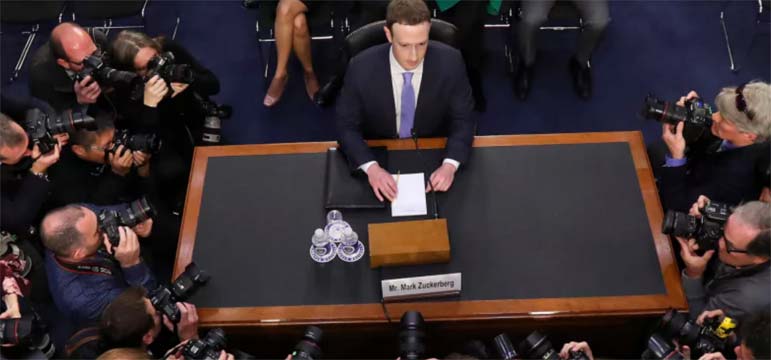
The poor performance of the U.S. Senate, some of whose members were barely capable of posing questions to Facebook's co-founder and chief executive officer Mark Zuckerberg during a hearing last month, might have been an anomaly. Now the European Parliament has managed to organize an unsatisfying hearing as well.
The two events were not disastrous for the same reasons. The Senate hearing was mostly remarkable for the large number of weak questions. Sen. Maria Cantwell, D-Wash., asked Zuckerberg if he'd ever heard of Palantir, a very large, hard-to-miss tech company. Sen. Roger Wicker, R-Miss., appeared unfamiliar with the concept of Facebook Messenger. Other questioners were more astute, but many were grandstanding.
It didn't matter. Zuckerberg appeared polite, said he'd "get back to you" on the crucial details and went home.
Grandstanding was a problem at European Parliament too. The parliamentarians spent about 60 minutes asking questions. Though some of them were quite specific - will Facebook commit to paying taxes in the countries where it operates? - they also overlapped and rambled on. In the time that remained - about 22 minutes - Zuckerberg appeared polite, said he'd "get back to you" on the crucial details and went home.
For anyone concerned about the future of Western democracy, the failure of Western lawmakers to make a single CEO of a single tech company answer questions about the consequences of the information revolution - for privacy, for good journalism, for national budgets, for political debate - should set off a loud alarm.
One of the most important sources of contemporary disdain for democracy is the widespread perception that democratic institutions are weak, incompetent and, more importantly, unsuited to the rapidly evolving digital world. This is might be the last chance to undermine that perception.
Legislators need to open up this debate to the public, find ways of informing and including their voters, bring in more experts and more witnesses, separate out the issues and address them all separately. Not every problem requires an elected body to resolve it, but some of them - the issues around political advertising, for example - very well might.
If our democratic representatives can't do it, who will?
Anne Applebaum is a Washington Post columnist.She is also the Director of the Global Transitions Program at the Legatum Institute in London.


 Contact The Editor
Contact The Editor
 Articles By This Author
Articles By This Author